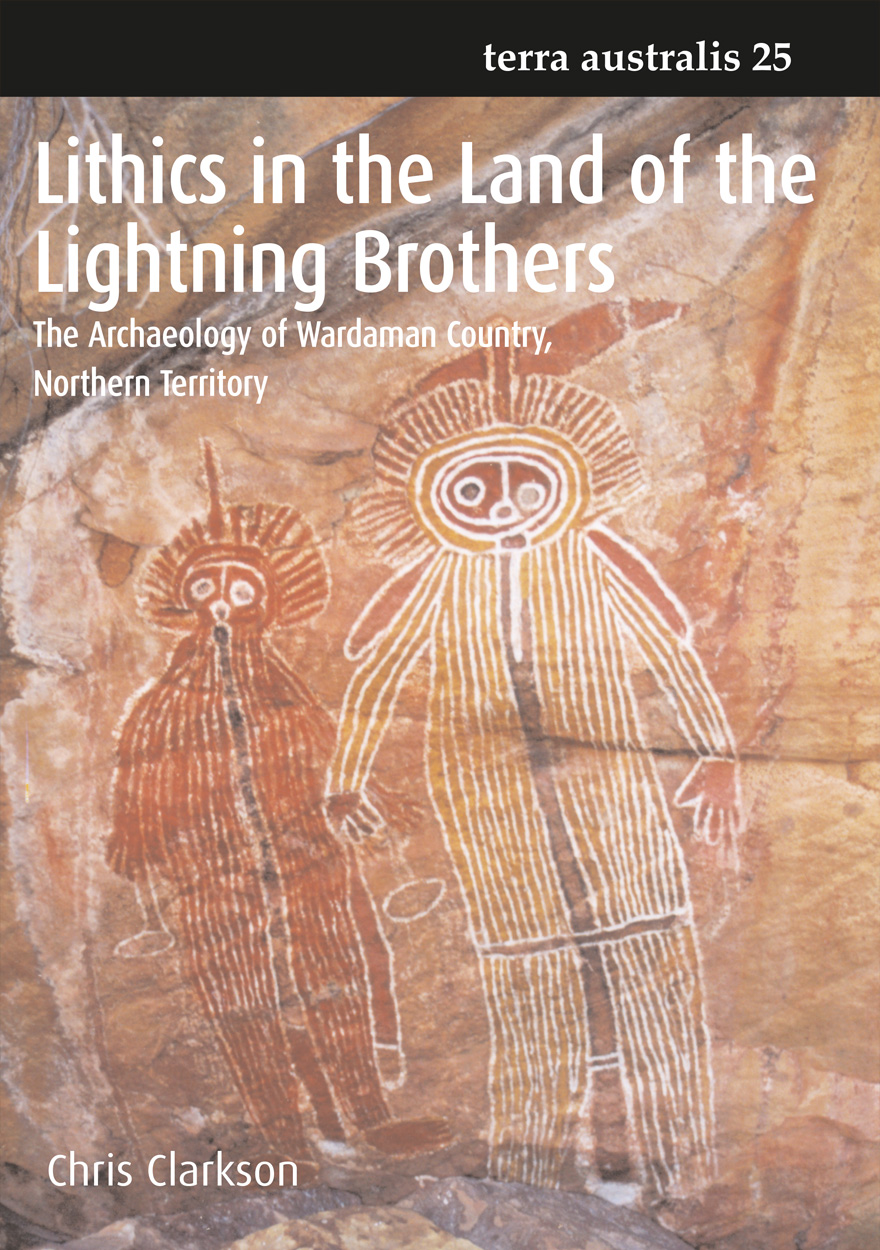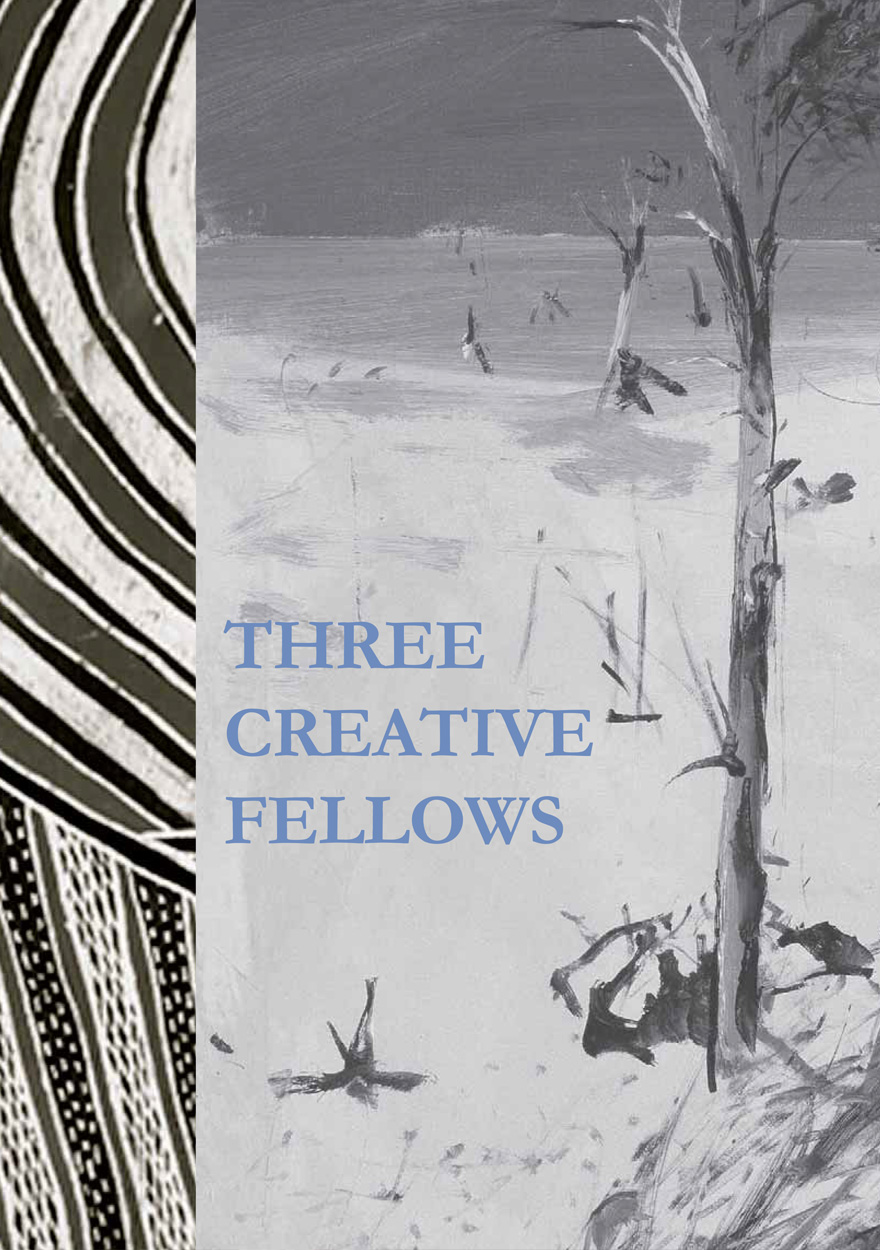Books
Browse or search ANU Press' range of books or find out more about the publications' authors and co-publishers. Download the book for free or buy a print-on-demand copy.
Displaying results 701 to 710 of 786.

Talking and Listening in the Age of Modernity »
Essays on the history of sound
Edited by: Joy Damousi, Desley Deacon
Publication date: November 2007
Historians have, until recently, been silent about sound. This collection of essays on talking and listening in the age of modernity brings together major Australian scholars who have followed Alain Corbin’s injunction that historians ‘can no longer afford to neglect materials pertaining to auditory perception’.
Ranging from the sound of gunfire on the Australian gold-fields to Alfred Deakin’s virile oratory, these essays argue for the influence of the auditory in forming individual and collective subjectivities; the place of speech in understanding individual and collective endeavours; the centrality of speech in marking and negating difference and in struggles for power; and the significance of the technologies of radio and film in forming modern cultural identities.

Conflict and Resource Development in the Southern Highlands of Papua New Guinea »
Edited by: Nicole Haley, R.J. May
Publication date: November 2007
The Southern Highlands is one of Papua New Guinea’s most resource-rich provinces, but for a number of years the province has been riven by conflict. Longstanding inter-group rivalries, briefly set aside during the colonial period, have been compounded by competition for the benefits provided by the modern state and by fighting over the distribution of returns from the several big mining and petroleum projects located within the province or impinging upon it. Deaths from the various conflicts over the past decade number in the hundreds. As a result of inter-group fighting, criminal activity and vandalism, a number of businesses have withdrawn from the province. Roadblocks and ambushes have made travel dangerous in many parts and expatriate missionaries and aid workers have left. Many public servants have abandoned their posts with the result that state services are not provided. Corruption is rife. Police are often reluctant to act because they are outnumbered and outgunned.
This volume brings together a number of authors with deep experience of the Southern Highlands to examine the underlying dynamics of resource development and conflict in the province. Its primary purpose is to provide some background to recent events, but the authors also explore possible approaches to limiting the human and economic costs of the ongoing conflict and breakdown of governance.

Caretaker Conventions in Australasia »
Minding the Shop for Government
Authored by: Anne Tiernan, Jennifer Menzies
Publication date: October 2007
A revised and updated 2014 edition of Caretaker Conventions in Australasia is available.
In this monograph, Anne Tiernan and Jennifer Menzies capably chart the often hazardous terrain of the ‘caretaker period’ that ensues from the time an election is called until a new government is formed. This is a landscape fraught with political and administrative dangers – particularly for public servants who are required to ‘mind the shop’ and keep the basic machinery of government going. The conventions represent an historical accretion of custom, practice and rules, often leavened with uncertainty. In tackling their subject, Tiernan and Menzies draw upon their shared past experiences as public servants and ministerial ‘staffers’ as well as the highest standards of academic scholarship – this is a ‘must read’ for politicians, public servants and students of government.

The Cult of the Market »
Economic Fundamentalism and its Discontents
Authored by: Lee Boldeman
Publication date: October 2007
The Cult of the Market: Economic Fundamentalism and its Discontents disputes the practical value of the shallow, all-encompassing, dogmatic, economic fundamentalism espoused by policy elites in recent public policy debates, along with their gross simplifications and sacred rules. Economics cannot provide a convincing overarching theory of government action or of social action more generally. Furthermore, mainstream economics fails to get to grips with the economic system as it actually operates. It advocates a more overtly experimental, eclectic and pragmatic approach to policy development which takes more seriously the complex, interdependent, evolving nature of society and the economy. Importantly, it is an outlook that recognises the pervasive influence of asymmetries of wealth, power and information on bargaining power and prospects throughout society. The book advocates a major reform of the teaching of economics.

Myanmar »
The state, community and the environment
Edited by: Monique Skidmore, Trevor Wilson
Publication date: October 2007
Despite deteriorating economic and developmental conditions, worsening environmental problems, and troubles arising from the unresolved status of its ethnic minorities, Myanmar seems no closer to a political resolution. Myanmar’s economy continues to stagnate, with severe implications for its people. Low levels of international assistance have exacerbated the situation.
Myanmar—the state, community and the environment examines the missed opportunities by government and opposition groups to find a way out of the political impasse and improve the standard of living of the people of Myanmar.
This collection provides insights into the country’s economic development, in particular the vital rice-marketing sector and the attempts to expand existing industrial zones. It focuses, for the first time, on Myanmar’s environmental governance with in-depth case studies, and on the increasing need for effective environmental protection and sustainability.

Struggling for the Umma »
Changing Leadership Roles of Kiai in Jombang, East Java
Authored by: Endang Turmudi
Publication date: October 2007
This thesis focuses on the relationship of Indonesian kiai (‘ulama: religious leaders) in Jombang to their wider social and political situation. It argues that the charismatic authority exerted through the leadership of the kiai in Java has limitations in terms of its legitimacy. At the very least it has boundaries that determine areas or circumstances for its legitimate expression. It also argues that the kiai’s influence in politics is not as strong as in other domains. Despite being a charismatic figure, only a minority of followers feel compelled to follow the kiai’s political example. Differences between the kiai and his followers in relation to political behaviour are common, especially after the transformation of the Islamic political party. Nevertheless, the role of the kiai in general remains important in the eyes of Muslim society.

The Social Effects of Native Title »
Recognition, Translation, Coexistence
Edited by: Benjamin R. Smith, Frances Morphy
Publication date: October 2007
The papers in this collection reflect on the various social effects of native title. In particular, the authors consider the ways in which the implementation of the Native Title Act 1993 (Cwlth), and the native title process for which this Act legislates, allow for the recognition and translation of Aboriginal law and custom, and facilitate particular kinds of coexistence between Aboriginal title holders and other Australians. In so doing, the authors seek to extend the debate on native title beyond questions of practice and towards an improved understanding of the effects of native title on the social lives of Indigenous Australians and on Australian society more generally.
These attempts to grapple with the effects of native title have, in part, been impelled by Indigenous people’s complaints about the Act and the native title process. Since the Act was passed, many Indigenous Australians have become increasingly unhappy with both the strength and forms of recognition afforded to traditional law and custom under the Act, as well as with the socially disruptive effects of the native title process. In particular, as several of the papers in this collection demonstrate, there is widespread discomfort with the transformative effects of recognition within the native title process, effects which can then affect other aspects of Indigenous lives.

Culture in Translation »
The anthropological legacy of R. H. Mathews
Edited by: Martin Thomas
Publication date: September 2007
R. H. Mathews (1841–1918) was an Australian-born surveyor and self-taught anthropologist. From 1893 until his death in 1918, he made it his mission to record all ‘new and interesting facts’ about Aboriginal Australia. Despite falling foul with some of the most powerful figures in British and Australian anthropology, Mathews published some 2200 pages of anthropological reportage in English, French and German. His legacy is an outstanding record of Aboriginal culture in the Federation period.
This first edited collection of Mathews’ writings represents the many facets of his research, ranging from kinship study to documentation of myth. It include eleven articles translated from French or German that until now have been unavailable in English. Introduced and edited by Martin Thomas, who compellingly analyses the anthropologist, his milieu, and the intrigues that were so costly to his reputation, Culture in Translation is essential reading on the history of cross-cultural research.
The translations from the French are by Mathilde de Hauteclocque and from the German by Christine Winter.
For more information on Aboriginal History Inc. please visit aboriginalhistory.org.au.

Lithics in the Land of the Lightning Brothers »
The Archaeology of Wardaman Country, Northern Territory
Authored by: Chris Clarkson
Publication date: September 2007
Lithics in the Land of the Lightning Brothers skilfully integrates a wide range of data-raw-material procurement, tool design, reduction and curation, patterns of distribution and association-to reveal the major outlines of Wardaman prehistory. At the same time, the book firmly situates data and methods in broad theoretical context. In its regional scope and thorough technological approach, this book exemplifies the best of recent lithic analysis and hunter-gatherer archaeology.
Any archaeologist who confronts the challenge of classifying retouched stone tools should consult this volume for a clear demonstration of reduction intensity as a source of size and form variation independent of “type.” Yet the demonstration is not merely methodological; Clarkson shows how the measurement of reduction intensity informs analysis of technological diversity and other cultural practices.
In Clarkson’s hands, Wardaman prehistory emerges as a particular record of the human past. Yet the book is also a case study in prolonged cultural response to environmental conditions and the way in which cultures persist and reproduce themselves over long spans of time. The result is an analytical tour de force that will guide hunter-gatherer archaeology in Australia and elsewhere for years to come.

Three Creative Fellows »
Sidney Nolan, Arthur Boyd and Narritjin Maymuru
Authored by: Mary Eagle
Publication date: September 2007
This catalogue presents works by three prominent Australian artists – Sidney Nolan, Arthur Boyd and Narritjin Maymuru – featured in the exhibition Three Creative Fellows, at the Drill Hall Gallery from 9 August – 16 September 2007.
All three artists were recipients of ANU Creative Arts Fellowships, and the authors of the essays presented in this volume are prominent ANU scholars. Dr Mary Eagle writes about Sidney Nolan’s and Arthur Boyd’s reflections on creativity, while Professor Howard Morphy contributes a moving essay about the creation stories painted by Narritjin Maymuru.



